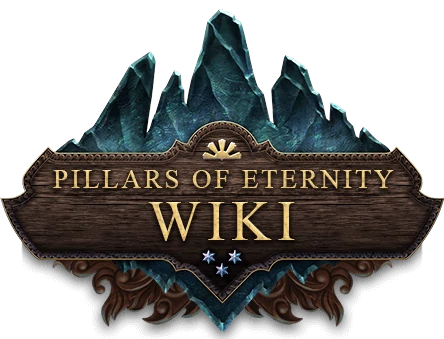No edit summary |
|||
| Line 16: | Line 16: | ||
==Writing System== |
==Writing System== |
||
[[File:Huana.png|thumb|right|Letters in the Huana script along with their English counterparts, and the phrase "Ngā ahi whakamoe."]] |
[[File:Huana.png|thumb|right|Letters in the Huana script along with their English counterparts, and the phrase "Ngā ahi whakamoe."]] |
||
| − | The Huana alphabet is made up of 24 characters, one for every consonant, short vowel, and long vowel. It is written from left to right, as in English, and words are separated by period-like dots. The symbols for paired short and long vowels are the same, except for the addition of a vertical line; the voiced and voiceless letter pairs b/p, d/t, and z/s each have basic shapes which are modified for the voiceless sound - p and s each take a horizontal line, and t gains a small circle. |
+ | The Huana alphabet is made up of 24 characters, one for every consonant, short vowel, and long vowel. It is written from left to right, as in English, and words are separated by period-like dots. The symbols for paired short and long vowels are the same, except for the addition of a vertical line; the voiced and voiceless letter pairs b/p, d/t, and z/s each have basic shapes which are modified for the voiceless sound - p and s each take a horizontal line, and t gains a small circle.<ref name="tumblr post" /> |
==Glossary== |
==Glossary== |
||
Revision as of 05:48, 18 July 2020
Huana is the language of the Huana people of the Deadfire Archipelago, and is commonly spoken there as the primary language alongside Aedyran. The language developed at an unknown time in the distant past, well before the collapse of the ancient Huana empire, and has gone mostly unchanged in the thousands of years since, being almost entirely in isolation until recently. It is closely related to Rauataian, but the period of separation has caused major differences to develop between the two, especially in Rauataian's addition of some sounds and words from Eld Aedyran and Vailian.
Phonology
Huana has a sound system of fourteen consonants and five short and long vowel pairs.[1] Although not specifically mentioned, there are also at least three long vowels. Huana is written phonetically, in contrast to languages like Eld Aedyran.
| Consonants | Vowels |
|---|---|
| b d h k m n ng p r s t w z wh |
a e i o u ā ē ī ō ū |
Syllables typically end on a vowel sound, with some exceptions, such as in the phrase "Mehena o rik". Words will also tend to use repetitive syllables ending on the same vowel, like in Tekēhu, Neketaka, and Kahanga.
Writing System
Letters in the Huana script along with their English counterparts, and the phrase "Ngā ahi whakamoe."
The Huana alphabet is made up of 24 characters, one for every consonant, short vowel, and long vowel. It is written from left to right, as in English, and words are separated by period-like dots. The symbols for paired short and long vowels are the same, except for the addition of a vertical line; the voiced and voiceless letter pairs b/p, d/t, and z/s each have basic shapes which are modified for the voiceless sound - p and s each take a horizontal line, and t gains a small circle.[1]
Glossary
- Ekera - A Huana term of agreement and emphasis.
- Galohi - A Huana pejorative, meaning "idiot."
- Kea mai - A Huana phrase indicating gratitude.
- Kuaru - The artisanal and merchant class of Huana society.
- Mataru - The warrior and priest class of Huana society.
- Mehena o rik - lit. “Long coils of the eel”, an ancient Huana phrase thought to be a term for long life, such as wishing a neighbor or a beloved a long and bountiful journey through Kohopa.[2]
- Paki Takiri - lit. "Big person", a role within Huana tribes for the purpose of resolving civil disputes.
- Ranga - A huana tribal chieftan, from which the Rauataian term "Ranga Nui" was derived.
- Roparu - The lowest class of Huana society.
- Skua wātana - lit. “Wurm-song tide”, an ancient Huana phrase which refers to a transitory period of time spent with a dragon.[2]
- Wihana o ma - lit. “Promise of the deep, dignitybound”, an ancient Huana term for Ngati’s covenant with the Huana.
Trivia
Rauataian (and, by association, Huana) was confirmed in 2013 to be based primarily on the language of the indigenous Māori people of New Zealand,[3] although it is unknown how much other languages have had an influence on it since its original creation, given that it is significantly different from the real world language. It may also be influenced by Japanese and Hawaiian, among other Pacific languages.
References
- ↑ 1.0 1.1 Tumblr post] by Josh Sawyer, July 17, 2020.
- ↑ 2.0 2.1 Pillars of Eternity II: Deadfire Guidebook, Vol. 2, Chapter 4
- ↑ Obsidian forum post by Josh Sawyer, December 16, 2013
| |||||||||||||||||||||||||||||||||||||||||||||||
